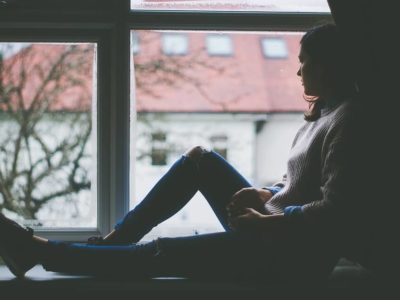“Seasonal depression is a myth.” –Me, circa 2008-2014.
Of course, I had about as much experience and knowledge of the topic as a middle school student might have about how to perform open-heart surgery. There’s no way people could actually get sad just because it was winter, right?
My first fall semester at the University of Maryland was a whirlwind of spirited all-day football tailgates, dance team potlucks and mind-bogglingly interesting classes. A new adventure awaited me every day, and every new conversation not only sparked my mind but forged brand new friendships. It was no wonder that following a month-long break in January, I was itching to get back to school.
When I returned for the spring however, my finely landscaped campus was hardly the sunny paradise I’d left behind in December. Sure, I had been there in the fall when the colorful leaves had started to die and leave behind the bare trees.
Now, at the end of January, the grassy hills were brown. The sun was nowhere to be found and everywhere you walked, you better bundle up–it’s sub-30 degrees basically 24/7.
No, this wasn’t my first winter or even my harshest. In fact, being the proud Pennsylvanian I am, I scoffed at Maryland natives who required layers of sweatshirts, coats and other outerwear just to walk to the dining hall.
This was, however, the first time in my life when the weather really affected my day-to-day activities. Between braving the bitter wind of Stamp Hill to trekking down to Route 1 at night in only a thin “fracket,” I was starting to understand how the lack of sunlight and warmth could damage a person’s mood.
Especially considering how badly it had been damaging mine.
By the end of February, if an event involved moving from my bed, I was most likely not going to be attending. My fun nights out with friends became fewer and fewer as I opted for more weekends cuddled in bed binge-watching American Horror Story (in retrospect, not the most enlightening of choices on my part).
Since Saturdays were no longer full of fun football festivities, I could barely motivate myself to leave the dorm. I found myself skipping my lectures just because I couldn’t wake up. God forbid I actually make it to class or find energy to sit at my desk instead of in bed. When I finally found some energy, it took only five minutes before I was distracted again with meaningless Twitter and Tumblr scrolling.
It wasn’t the time lounging around that had me feeling down, but more the fact that I had absolutely no energy to do anything else. I simply couldn’t stop myself from laying around, dark thoughts filling my head and constantly using the internet to distract myself from anything that really mattered. The vicious cycle sent me spiraling deeper and deeper into my misery. I felt too lethargic to go outside and get fresh air. My never-changing, dark stale dorm room environment led to more lethargy.
So on and so forth.
I knew that something was wrong with me, but having never dealt with this issue before, I had no clue how to get help. It wasn’t until I finally went back home for a weekend at the end of March that I even realized what the problem was–it wasn’t that seasonal depression didn’t exist, it was that I was never at risk when I was home.
In high school, the winter was my busiest season. While I was still indoors most of the day, I was on a tightly structured schedule. Dance practices and musical rehearsals kept me constantly driving between the studio and my school–not to mention, driving between two different groups of my best friends. I was happy, healthy and social. The only time I spent in bed was reserved for sleeping.
Though the time between classes in college is a blessing for many, for me it became a curse in the spring semester. Sure, I still had commitments, but no combination of class and activities could keep me out of my dorm from 7 a.m. until 9 p.m. six days a week like I was used to in high school. Thanks to the snow, ice and all-around horrid winter weather, my extra free time kept me indoors and under the covers.
It took me most of my spring semester to shake my winter funk, but as soon as the nice weather sprouted I could spend my time studying outside and stop wearing snow boots 24/7. I couldn’t help but grow slightly more cheery. My rough semester took a lot out of me, but it reinforced the important lesson I’d always known about myself–I’m just happier when I’m busier. My second spring semester is days away, and with this knowledge, I’m ready to combat another round of seasonal depression no matter how cold it gets.
And of course, staying away from American Horror Story: Hotel will probably help my mood, too.



















